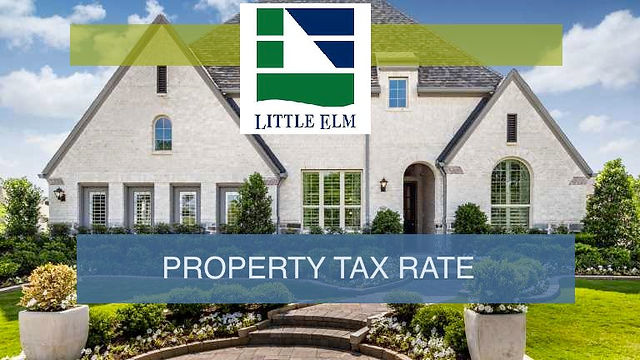
A purchase of a rental property from outside of your state may have its benefits as well as drawbacks. This article discusses the advantages and disadvantages of doing this. It also includes information about financing options. There are many ways to finance rental property. To get expert advice on the market or the property, you may also want to work with a local realtor.
Investing abroad in a rental home
A great idea is to invest in rental properties that are not located in your home state. Many people who live in expensive areas find there are more affordable properties in other locations. Investors can make a higher profit by finding cheaper properties elsewhere. You can diversify and increase your portfolio by purchasing rental properties in other states.
Another reason to invest in rental properties outside your home state is because of the geographical diversity. This is a big advantage. By investing in rental property in multiple locations, you can diversify and protect your portfolio. Each state, county and town is different so a market drop in one area might not have the same effect on another.

Challenges
Renting property out of state is a possibility for you, but the process can be hard. Although you might make higher profits in markets outside of your home state, you should spend more time getting to know the area. It is important to research the local area online before you start looking for the right properties to rent.
If you're looking to diversify your real estate portfolio, buying property out-of-state can be a smart move. However, it can be tedious and costly.
Rewards
Investing in out-of-state rental properties can have many benefits. First, it diversifies your rental portfolio and minimizes the risk of total destruction in one area. Second, every county, state, and town has a different economic system. That means a decline in one area may not affect the markets in nearby areas.
The final benefit is that renting out your state property can diversify and bring in passive income. However, it is important to be aware of the risks and benefits of renting out your property. The laws that govern landlord-tenant relations vary from one state or another, even within one state. These laws can influence how you screen tenants and increase rents, or decline lease agreements.

Finance options
In order to get financing for your investment in rental property, you will need to make additional arrangements. The best way to avoid these pitfalls is to research your financing options and get pre-approved before looking at properties. This will help you to avoid surprises and speed up the process once you have found the perfect property.
Another option is to approach banks or other lending institutions. A bank or lending institution will be more lenient if you have an established track record as a landlord and can show that you're a good risk. Typically, a downpayment of at least twenty five percent is required. This will lower your debt-to-income ratio and allow you to pay a lower interest rate.
FAQ
What should I consider when investing my money in real estate
First, ensure that you have enough cash to invest in real property. If you don’t have the money to invest in real estate, you can borrow money from a bank. You also need to ensure you are not going into debt because you cannot afford to pay back what you owe if you default on the loan.
You also need to make sure that you know how much you can spend on an investment property each month. This amount must include all expenses associated with owning the property such as mortgage payments, insurance, maintenance, and taxes.
Also, make sure that you have a safe area to invest in property. It is best to live elsewhere while you look at properties.
How do I get rid termites & other pests from my home?
Over time, termites and other pests can take over your home. They can cause severe damage to wooden structures, such as decks and furniture. You can prevent this by hiring a professional pest control company that will inspect your home on a regular basis.
How much does it take to replace windows?
Replacement windows can cost anywhere from $1,500 to $3,000. The cost to replace all your windows depends on their size, style and brand.
Statistics
- Based on your credit scores and other financial details, your lender offers you a 3.5% interest rate on loan. (investopedia.com)
- It's possible to get approved for an FHA loan with a credit score as low as 580 and a down payment of 3.5% or a credit score as low as 500 and a 10% down payment.5 Specialty mortgage loans are loans that don't fit into the conventional or FHA loan categories. (investopedia.com)
- The FHA sets its desirable debt-to-income ratio at 43%. (fortunebuilders.com)
- This seems to be a more popular trend as the U.S. Census Bureau reports the homeownership rate was around 65% last year. (fortunebuilders.com)
- When it came to buying a home in 2015, experts predicted that mortgage rates would surpass five percent, yet interest rates remained below four percent. (fortunebuilders.com)
External Links
How To
How to Manage a Property Rental
It can be a great way for you to make extra income, but there are many things to consider before you rent your house. We'll show you what to consider when deciding whether to rent your home and give you tips on managing a rental property.
If you're considering renting out your home, here's everything you need to know to start.
-
What should I consider first? You need to assess your finances before renting out your home. You may not be financially able to rent out your house to someone else if you have credit card debts or mortgage payments. It is also important to review your budget. If you don't have enough money for your monthly expenses (rental, utilities, and insurance), it may be worth looking into your options. You might find it not worth it.
-
How much is it to rent my home? There are many factors that go into the calculation of how much you can charge to let your home. These factors include your location, the size of your home, its condition, and the season. You should remember that prices are subject to change depending on where they live. Therefore, you won't get the same rate for every place. Rightmove estimates that the market average for renting a 1-bedroom flat in London costs around PS1,400 per monthly. This would translate into a total of PS2,800 per calendar year if you rented your entire home. It's not bad but if your property is only let out part-time, it could be significantly lower.
-
Is it worth it. It's always risky to try something new. But if it gives you extra income, why not? It is important to understand your rights and responsibilities before signing anything. Your home will be your own private sanctuary. However, renting your home means you won't have to spend as much time with your family. Before signing up, be sure to carefully consider these factors.
-
What are the benefits? You now know the costs of renting out your house and feel confident in its value. Now, think about the benefits. Renting out your home can be used for many reasons. You could pay off your debts, save money for the future, take a vacation, or just enjoy a break from everyday life. It is more relaxing than working every hour of the day. Renting could be a full-time career if you plan properly.
-
How can I find tenants? Once you've decided that you want to rent out, you'll need to advertise your property properly. Make sure to list your property online via websites such as Rightmove. Once you receive contact from potential tenants, it's time to set up an interview. This will enable you to evaluate their suitability and verify that they are financially stable enough for you to rent your home.
-
How do I ensure I am covered? If you're worried about leaving your home empty, you'll need to ensure you're fully protected against damage, theft, or fire. You will need to insure the home through your landlord, or directly with an insurer. Your landlord will typically require you to add them in as additional insured. This covers damages to your property that occur while you aren't there. If you are not registered with UK insurers or if your landlord lives abroad, however, this does not apply. In these cases, you'll need an international insurer to register.
-
If you work outside of your home, it might seem like you don't have enough money to spend hours looking for tenants. It's important to advertise your property with the best possible attitude. Post ads online and create a professional-looking site. You'll also need to prepare a thorough application form and provide references. While some prefer to do all the work themselves, others hire professionals who can handle most of it. In either case, be prepared to answer any questions that may arise during interviews.
-
What happens once I find my tenant If you have a contract in place, you must inform your tenant of any changes. If this is not possible, you may negotiate the length of your stay, deposit, as well as other details. You should remember that although you may be paid after the tenancy ends, you still need money for utilities.
-
How do you collect the rent? When it comes to collecting the rent, you will need to confirm that the tenant has made their payments. If your tenant has not paid, you will need to remind them. Before you send them a final invoice, you can deduct any outstanding rent payments. If you're having difficulty getting hold of your tenant you can always call police. They will not usually evict someone unless they have a breached the contract. But, they can issue a warrant if necessary.
-
How can I avoid problems? While renting out your home can be lucrative, it's important to keep yourself safe. You should install smoke alarms and carbon Monoxide detectors. Security cameras are also a good idea. Check with your neighbors to make sure that you are allowed to leave your property open at night. Also ensure that you have sufficient insurance. You should never allow strangers into your home, no matter how they claim to be moving in.